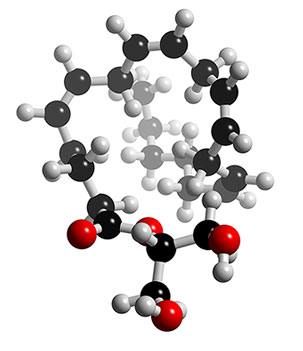“Smokers trying to quit in the future could do it with the help of cannabis based medicines, according to research from The University of Nottingham.
Teams of pharmacologists, studying the cannabis-like compounds which exist naturally in our bodies (endocannabinoids), are exploring the potential for medical treatment. This includes treating conditions as diverse as obesity, diabetes, depression and addiction to substances like nicotine.
Scientists have known about endocannabinoids since the mid-1990s. This led to an explosion in the number of researchers looking into the future medical uses of cannabinoids and cannabis compounds.
Dr Steve Alexander, Associate Professor in the School of Biomedical Sciences, focused on a number of these projects in editing the first themed podcast for the British Journal of Pharmacology.
Dr Alexander said: “It is clear that there is very realistic potential for cannabinoids as medicines. Scientists are looking at a range of possible applications.”
One of these researchers is Professor David Kendall, a cellular pharmacologist at the University: “The brain is full of cannabinoid receptors. And so, not surprisingly with diseases like depression and anxiety, there’s a great deal of interest in exploiting these receptors and in doing so, developing anti-depressant compounds.”
Addiction is a real target – researchers like Professor Kendall believe the endocannabinoids could be a crucial link to addictive behaviour: “We know that the endocannabinoid system is intimately involved in reward pathways and drug seeking behaviour. So this tends to indicate that that if the link involving endocannabinoids and the reward pathway, using inhibitors, can be interrupted, it could turn down the drive to seek addictive agents like nicotine.”
Because cannabinoids have also been shown to bring down blood pressure, it is hoped that related compounds can be used in patients with conditions like hypertension.
Dr Michael Randall, a cardiovascular pharmacologist at the University has looked at how endocannabinoids cause blood vessels to relax. “This could have many implications,” Dr Randall said. “The endocannabinoids appear to lower blood pressure under certain conditions; states of shock for example. If the endocannabinoids are of physiological importance, this could have real therapeutic possibilities.”
“In terms of getting better medicines the endocannabinoid system has a lot to offer,” said Dr Alexander. “The range of cannabis-related medicines is currently limited, but by increasing our knowledge in this area we can increase our stock.”
The University of Nottingham”
http://www.brightsurf.com/news/headlines/36296/Curing_addiction_with_cannabis_medicines.html


 “A new research effort has a provocative outcome as University of California-Berkeley researchers suggest substituting cannabis for treatment of heavy alcohol abuse.
“A new research effort has a provocative outcome as University of California-Berkeley researchers suggest substituting cannabis for treatment of heavy alcohol abuse.